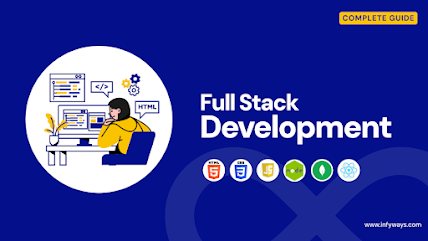How AI is Reshaping Full Stack Development in 2025
Artificial Intelligence (AI) is rapidly transforming the full stack development landscape, reshaping how applications are designed, built, tested, and deployed. What was once manual and time-consuming is now being automated or accelerated through AI tools, empowering developers to push the boundaries of innovation.
A New Era of Developer Productivity
One of AI's biggest contributions to full-stack development is its ability to supercharge productivity. Tools like GitHub Copilot are already making waves in the developer community. Powered by OpenAI’s Codex model, Copilot acts like a virtual coding partner—analyzing context and offering code completions or entire function suggestions in real time.
According to research by Codota, developers using AI-assisted tools can increase productivity by 30% and cut down coding time by up to 55%. These gains enable developers to take on larger, more complex projects without getting bogged down in repetitive or boilerplate tasks.
The adoption rate reflects this growing confidence. GitHub Copilot surpassed 1 million users within two months of its technical preview—an unprecedented uptake that speaks volumes about the hunger for AI-driven development support.
Smarter Code, Fewer Bugs
AI isn’t just speeding up development—it’s improving code quality as well. Intelligent code review platforms like DeepCode are transforming how bugs and vulnerabilities are identified. By analyzing over 25 million repositories and billions of lines of code, DeepCode’s AI engine can detect common bug patterns, security flaws, and code inefficiencies with impressive accuracy.
Other tools, such as Kite, assist developers by predicting code completions based on real-time context. Having processed more than 2 billion keystrokes, Kite has delivered over 1 million code completions. These platforms reduce errors early in the cycle, cut down on manual reviews, and promote consistent coding standards across teams.
As a result, developers are no longer just writing faster—they’re writing better.
The Rise of Low-Code and No-Code Platforms
AI has also played a major role in the explosion of low-code/no-code (LCNC) platforms. By simplifying the development process, these platforms are making it possible for business users, entrepreneurs, and other non-developers to build applications without writing complex code.
AI acts as the invisible engine behind many LCNC platforms, offering suggestions, pre-built logic, and auto-completion to guide users. According to industry reports, the LCNC market is projected to hit $65.15 billion by 2027, growing at a compound annual growth rate (CAGR) of nearly 23%.
A Gartner survey further highlighted this shift, revealing that AI-assisted development tools will be used by 40% of developers by 2023, up dramatically from just 2% in 2019. This democratization of software development is a critical milestone in making technology accessible to all, regardless of technical expertise.
Embracing the AI-Integrated Workflow
The future of software development is clearly intertwined with AI. Whether it’s handling tedious backend configurations, accelerating frontend UI development, or optimizing APIs, AI has become a permanent fixture in the full-stack developer’s toolkit.
As software demands grow more complex, AI tools will evolve from being assistants to becoming collaborators, supporting developers with real-time feedback, adaptive learning, and deep code understanding.
According to projections, AI in the IT sector is set to grow from $8.4 billion in 2022 to $27.2 billion by 2027, growing at an impressive CAGR of 26.5%. This growth signals that AI isn’t just a helpful addition—it’s quickly becoming a necessity in development environments.
Conclusion: Building the Future, Side-by-Side with AI
AI is no longer an emerging trend in full-stack development—it’s an integral part of the process. From elevating code quality and accelerating production timelines to empowering non-developers through visual platforms, AI is reshaping how we build software at every level.
As we stand on the edge of this transformation, the question is no longer whether to embrace AI in development, but how fast you can adapt. The future of full-stack development is collaborative, AI-driven, and boundless—and it's already here.




Comments
Post a Comment